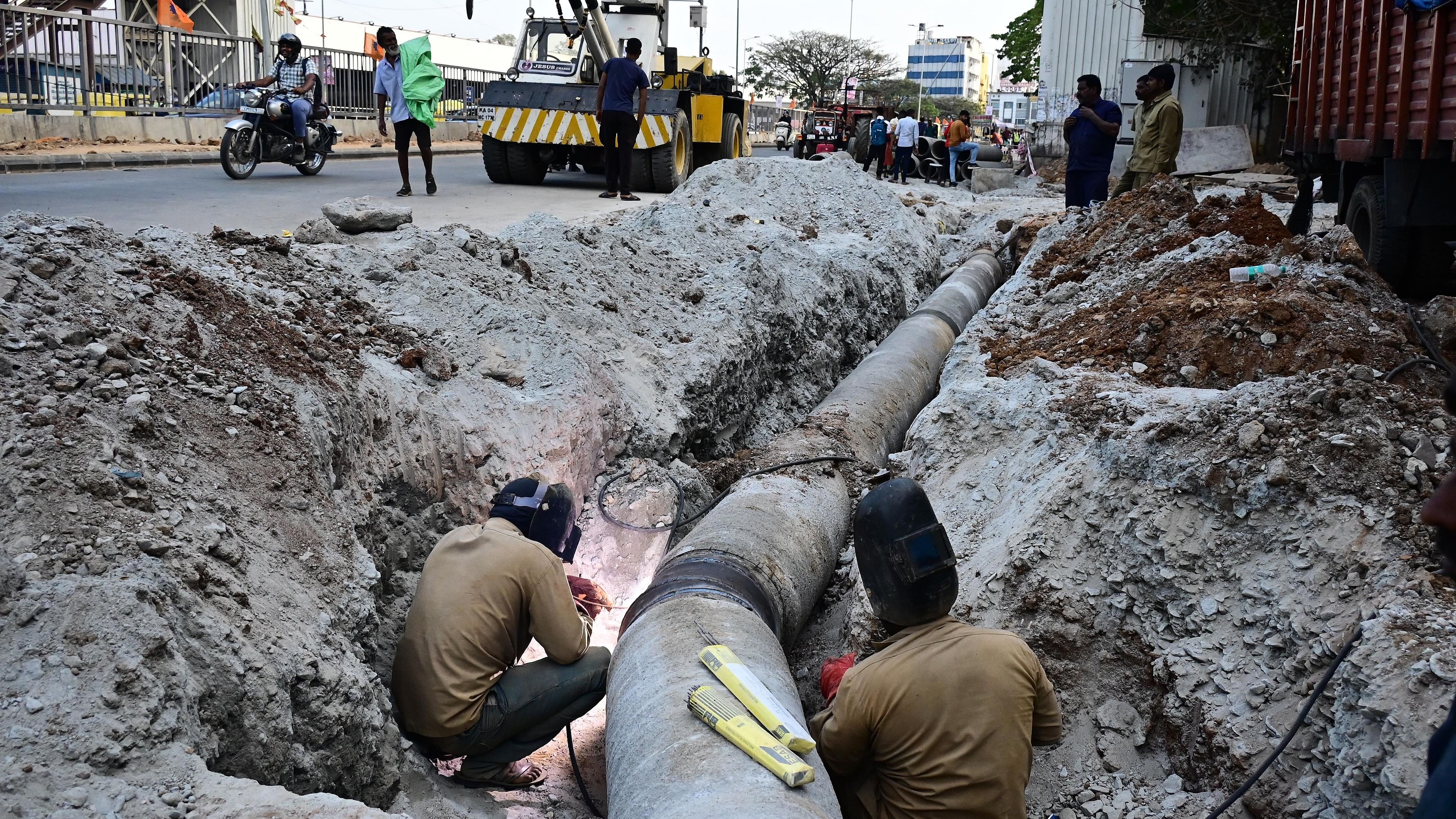
A pipe being laid to supply Cauvery water in Bengaluru.
Credit: DH FILE PHOTO
Bengaluru: As Bengaluru’s peripheral areas face a drinking water crisis, the Bengaluru Water Supply and Sewerage Board (BWSSB) has demanded the additional 10 tmcft of water that the government had promised in 2016.
In a letter to the Cauvery Neeravari Nigam Ltd (CNNL), the BWSSB has sought about 2.4 tmcft of water a day, up from the 1.6 tmcft provided at present, as it prepares to supply water to the erstwhile 110 villages that were added to the BBMP almost one-and-half decades ago.
BWSSB chairman Ram Prasath Manohar told DH, “We have asked the water authority to store around 2.4 to 2.5 tmcft of water. The request has been made as the government has allocated an additional 10 tmcft of water,” he said.
After the government promised additional water for Bengaluru from river Cauvery, the BWSSB took up a Rs 5,500-crore project of providing large pipelines from the river basin to Bengaluru. The project is expected to be completed by March this year.
“We will be able to test run in the next three months. Barring the pumping station, rest of the work is almost done,” the chairman of BWSSB said.
At present, the BWSSB supplies around 1,450 million litres per day (MLD) of water, which, however, reaches less than 70% of Bengaluru’s population while the rest of the citizens continue to depend on ground water or private tankers owing to the BWSSB’s delay in completing two crucial projects — laying pipelines for conveyance of water from rivers Cauvery and distribution lines to connect houses.
“Only 30% of residences in Mahadevapura get Cauvery water and that too twice a week only,” Clement Jayakumar, member of the MLA-constituted Mahadevapura Task Force, told DH.
“With lesser rains in 2023, the borewells yield has come down is most places,” he said, adding that Cauvery water receipt to Mahadevapura has also reduced by 35-40% as upstream areas are drawing more water.
Ashok Mruthyunjaya, an office bearer of Karnataka’s Aam Aadmi Party (AAP), said people in the BBMP’s outskirts are spending as much as Rs 1,650 for 12,000 litres supplied by private tankers.
“The water is being drawn from areas like Hosakote and Balagere. The water is highly polluted and residents have complained of health complications,” he said, pointing to blatant lake encroachments on one side and approvals for new layouts and buildings on the other without providing the required water.
Even as the drinking water crisis in Bengaluru is imminent, experts have raised doubts about the availability of water in the Kabini and KRS reservoirs to meet the city’s growing demand for drinking water.
“If the government plans to fetch additional water, it will only be at the cost of farmers who are depending on the same water for irrigation purposes. The government must instead focus on other sources, including systematic efforts to harvest rainwater in the city,” MN Thippeswamy, water expert and retired BWSSB engineer said.